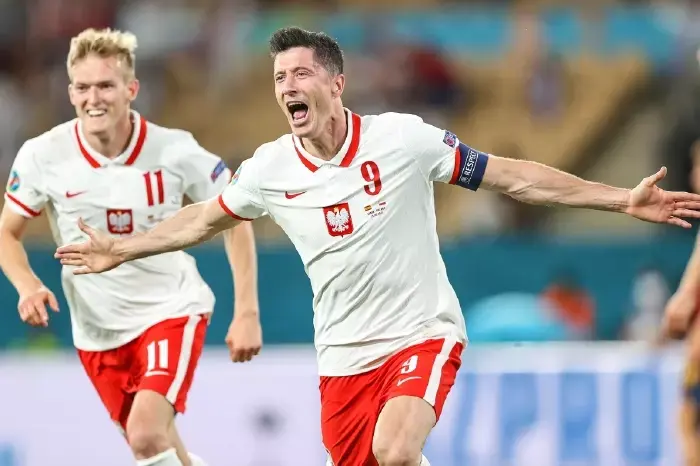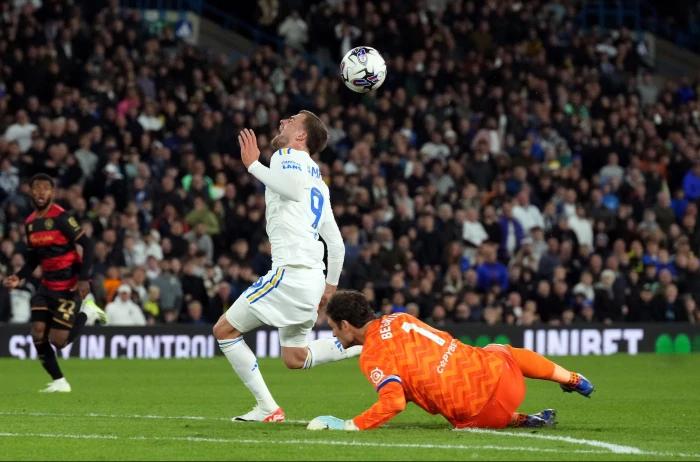Nine things you didn’t know about Poland – and one thing you did

England will close out their international break with a clash against familiar foes, Poland. With that in mind, Planet Sport brings you a few facts you may not have known about the Poles.
Poland currently represent the biggest challenge to Gareth Southgate's qualifying hopes.
1 - Paulo Sousa's Champions League record
The Juventus, Borussia Dortmund and Inter Milan defensive midfielder enjoyed a highly successful career as a player - something that cannot be said about his managerial run… at least for now.
The former Portugal international has taken charge of ten games as manager of Poland but only won three times. Their scalps have not been that impressive, either, with Andorra, Albania and San Marino the beaten teams - San Marino even managed to score.
The 50-year-old doesn't seem too fazed by the criticism, however.
His first European Cup victory came in 1996 as a Juventus player. The second came with Borussia Dortmund just 12 months later - beating Juventus, of all teams, in the final.
2 - The clown with a World Cup record
The man described by Brian Clough as a 'clown' went on to single-handedly deny England a place in the 1974 World Cup. His goalkeeping heroics at Wembley helped Poland to a 1-1 draw which proved crucial in their qualification bid.
That game put the goalkeeper into the history books but would go on to overshadow all of his other major achievements.
For example, one thing you may not know about Tomaszewski is that at the 1974 World Cup, he became the first goalkeeper in history to save two penalties at a single tournament.
Sweden's Jana Tappera was his first victim as Poland went on to win 1-0 in the second round. Bayern Munich legend Uli Hoeness was the other penalty casualty as Poland and West Germany clashed for a place in the final.
3 - Excitement about next generation
The national side have only qualified for three World Cups since 1986, failing to progress past the group stage on every occasion.
Their record isn't much better when it comes to the Euros. Poland have only ever competed in four European Championships, making it past the group stage once, in 2016.
However, that could be about to change.
The young crop of players breaking through across some of the continent's toughest leagues have stirred a lot of excitement back in Poland.
The likes of Mateusz Gorski (Ajax), Kamil Grabara (FC Copenhagen), Marcin Bulka (Paris Saint-Germain), Krystian Bielik (Derby County), Sebastian Szymanski (Dynamo Moscow), Fabian Mrozek and Mateusz Musialowski (both Liverpool) are expected to take the national side to the next level.
4 - Inspiration for Iceland's Viking clap
One of the most impressive scenes at Euro 2016 was Iceland's Viking chant which gained worldwide attention - especially after their 2-1 win over England.
After seeing a video of Polish handball fans doing a variation of the chant, the Iceland supporters took the ball and ran with it.
In 2016 the head of the association, Styrmir Gislason told Danish newspaper Jyllands Posten: "The Poles came up with this form of chant, and we took it on and adapted it to our historical traditions. Today, after the games in France, the sound of our chant gives us goosebumps and makes us feel like fearless Vikings."
5 - Poles and Brits play soccer match in Baghdad
Arguably the most famous wartime soccer match took place during the Christmas truce in World War I. British and German soldiers famously put aside their weapons and played a match which according to reports was won by the four-time World Cup winners.
One wartime match which rarely gets a mention took place in 1943 - the midst of World War II.
Unlike the Christmas truce match, the preparations this time round were a lot more serious. In fact, Poland even hosted a pre-match training camp of 40 players as they looked to pick their strongest XI.
A crowd of 8,000 fans - which included Generals Wladyslaw Anders and Henry Maitland Wilson - packed into the Scouts Ground and watched on as Poland romped to a 4-0 victory.
6 - The traitor who made World Cup history
Ernst Wilimowski has a fascinating FIFA World Cup career
— Aniket Mishra (@aniketmishra299) October 4, 2020
He played only 1 game in 1938 for Poland and scored 4 goals in Brazil; unfortunately his team lost 5-6 and thus he never played another match in the event
Till date, he is the only player to score 4 goals in a losing cause pic.twitter.com/8bBRTELXD4
Poland's first World Cup appearance took place in 1938 and such is luck, they drew one of the strongest teams on the planet, Brazil.
Ultimately, Brazil prevailed 6-5 but the true star of the show was Wilimowski who became the first ever player to score four goals in a single World Cup game.
7 - Twelve unsuccessful Euro qualifying campaigns
One thing you may not know about the national team is that they failed to qualify for 12 successive tournaments since its inception in 1960.
8 - Rare Champions League appearances
Legia returned to the competition during the 2016/17 season. However, their only noteworthy contribution was a record breaking 8-4 defeat to Borussia Dortmund.
9 - Only one win over England
Putting aside Poland's win over the British army during the World War II, their only other win over England came in 1973.
Many in Poland consider the result a victory, often referring to "the time they beat England 1-1".
10 - England's biggest threat in World Cup qualifiers
One thing we know for sure is that Poland represent the biggest threat to England's World Cup qualifying hopes.
Yes, they may be a few points behind in the group. However, a win over the Three Lions will change the entire outlook.
Poland are quietly confident - especially after their encouraging performance in the 2-1 loss at Wembley last March.
But then again, the Poles will also need England to drop points against other opposition following their own 3-3 draw with Hungary at the start of the qualifying group.
Gareth Southgate's side may be in pole position but that doesn't mean the sleeping giants of Eastern Europe are not capable of a 1973 repeat.











